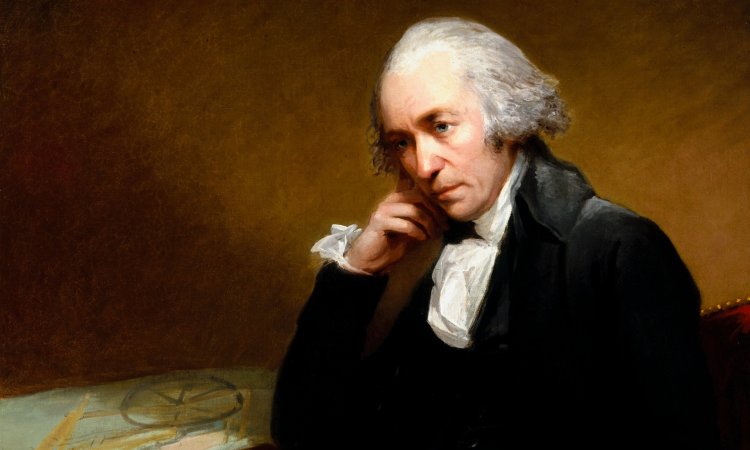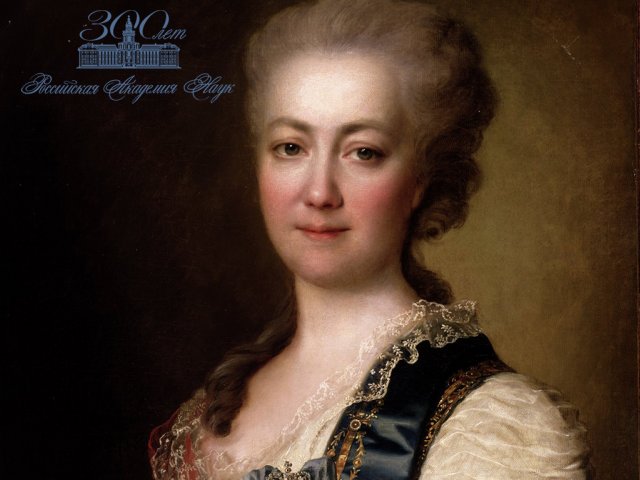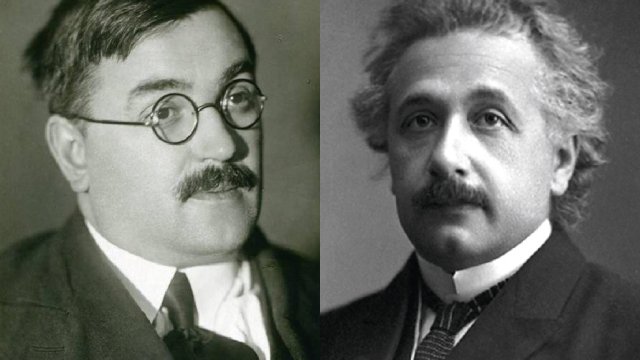Official:
James Watt. January 19 (30), 1736 – August 19, 1819. Scottish scientist, engineer, mechanical inventor. Member of the Royal Society of Edinburgh, Royal Society of London, Paris Academy of Sciences. Unit of power.
Life and Work:
1. “I have been working hard for the benefit of the society for the most of my life and I hope it is not in vain,” James Watt wrote in his old age. And he was right, he was appreciated. The monument to Watt in St. Paul’s Cathedral reads: “Enlarged the resources of his country, increased the power of man, and rose to an eminent place among the most illustrious followers of science and the real benefactors of the world.”
2. Everything written here is absolute truth: he really enlarged, increased and rose. Watt is included in a short list of scientists whose names have become common nouns and denote physical units. Letter w standing for “Watt” is written on every light bulb. Isn’t it the pinnacle of recognition?
3. The future benefactor of the world was born in Greenock, Scotland, in a family engaged in science and engineering: his grandfather was teaching mathematics and navigation, his father was building ships, repairing and inventing various mechanisms, for example, he built the first crane for Greenock Marina.
4. Fragile and sickly, James was largely studying at home. Once a family friend saw that the boy was drawing some lines and angles on a fireplace with chalk and reproached his parents for allowing their son to fool around instead of sending him to school. The guest was put to shame: it turned out that little James was looking for a solution to the Problem of Euclid.
5. However, even his parents sometimes did not understand the young naturalist. They say that once, when he was a child, 12-year-old James got his gruel for fiddling around with a kettle while drinking tea. He was sitting at the tea table and silently dealing with a boiling kettle for an hour: he used to open and close its lid, then put a saucer or a spoon to it and watch the falling drops of water.
6. Another version says that James Watt arrived at the idea of creating a steam engine by observing the dancing lid of a pot. However, no matter what actually prompted him – it is important what happened as a result: today James Watt is revered as the creator of the universal steam engine and the father of the industrial revolution.
7. After finishing his Grammar School in Greenock, Watt went to London to obtain a period of training as an instrument maker. However, he did not have enough money for a seven-year course of craft training. Thus, a year later Watt returned to Scotland with such a level of qualification that he was hired to do the work of a master of scientific instruments at the University of Glasgow.
8. By the time Watt began creating the steam engine, the Thomas Newcomen steam engine had been pumping water from deep mines for several decades. James Watt made sure about its inefficiency and redesigned the engine in such a way that the engine became high-performance and gained wide use.
9. While proving that the steam engine can replace several horses, James Watt invented the term “horsepower” that he proposed as a unit of power.
10. Watt did not know that in 1882, almost 100 years after he had invented the steam engine, the British Science Association named the unit of power after him. This was the first time this had happened in the history of engineering.
11. By the way, James Watt was almost hooked by a Russian bear with its paw. Saint Petersburg Academy of Sciences invited the renowned engineer to work in Russia. He was offered “an occupation fitting his taste and knowledge” and an annual salary of 1,000 pounds sterling. Poet Erasmus Darwin was begging him not to go there: “Lord, how frightened I was, when I heard a Russian Bear had laid hold of you with his great Paw, and was dragging you to Russia! Pray don’t go, if you can help it... I hope your Fire-Machines will keep you here.” The hopes for the Fire Machine came true: Watt did not go to Russia.
12. Apart from the steam engine, James Watt also invented the first copying machine. It needed a mixture of vinegar, crushed shells, galls, and distilled water to work. Watt’s copiers were used in offices till the 20th century.
13. Having lived for 83 years, Watt retained a clear mind and physical strength even at his advanced age. In one of his letters, Walter Scott who knew Watt well called him a powerful old man. A funny pun!
14. Watt combined the theoretical knowledge of science with its practical application. British chemist and physicist Humphry Davy said the following about him: “Those who consider James Watt only as a great practical mechanic form a very erroneous idea of his character. He was equally distinguished as a natural philosopher and a chemist, and his inventions demonstrate his profound knowledge of those sciences, and that peculiar characteristic of genius, the union of them for practical application.”
15. Watt did not graduate from any university, but in 1806, in recognition of his scientific achievements, he was conferred the honorary Doctor of Laws by the University of Glasgow.
16. Anyone can look into the face of James Watt now if, of course, this person has a £50 note in their pocket. But don’t make a mistake: Watt is on the right. On the left is Matthew Boulton, an English industrialist and Watt’s business partner. It was thanks to him that Watt achieved commercial success and made an industrial revolution: hundreds of steam engines made by Boulton & Watt were working at factories and plants to ensure Watt’s comfortable and secure old age.






















